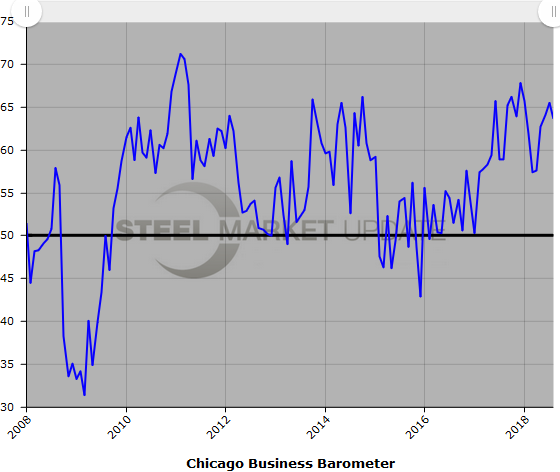Market Data

September 3, 2018
Chicago Business Barometer Slips in August
Written by Sandy Williams
The August Chicago Business Barometer recorded its first decrease in five months for a three-month low of 63.6 in August. The index was down 1.9 points from July’s reading of 65.5, according to MNI Indicators and the Institute for Supply Management-Chicago.
Output and orders inched up slightly last month giving some firms breathing room to catch up on unfinished orders.
The index for supplier deliveries fell in both August and September, but remains in expansion at a reading above 60.
Manufacturers reported that high input prices continued to weigh on production capacity. The prices paid index was above 80 for the second time since late-2008, said MNI. Trade disruptions were blamed for elevated prices on a wide range of materials including steel, as well as allocation issues.
“The MNI Chicago Business Barometer continues to signal solid business sentiment, despite easing for the first time in five months, with growth in output and demand holding up well,” said Jamie Satchi, economist at MNI Indicators.
“Inflationary pressures look set to continue, potentially bleeding into consumer prices, with over 60 percent of firms reporting that they have passed on higher input costs to customers in recent months, and others foreseeing doing so in the near future,” he added.
Below is a graph showing the history of the Chicago Business Barometer. You will need to view the graph on our website to use its interactive features; you can do so by clicking here. If you need assistance logging in to or navigating the website, please contact Brett at 706-216-2140 or Brett@SteelMarketUpdate.com.








